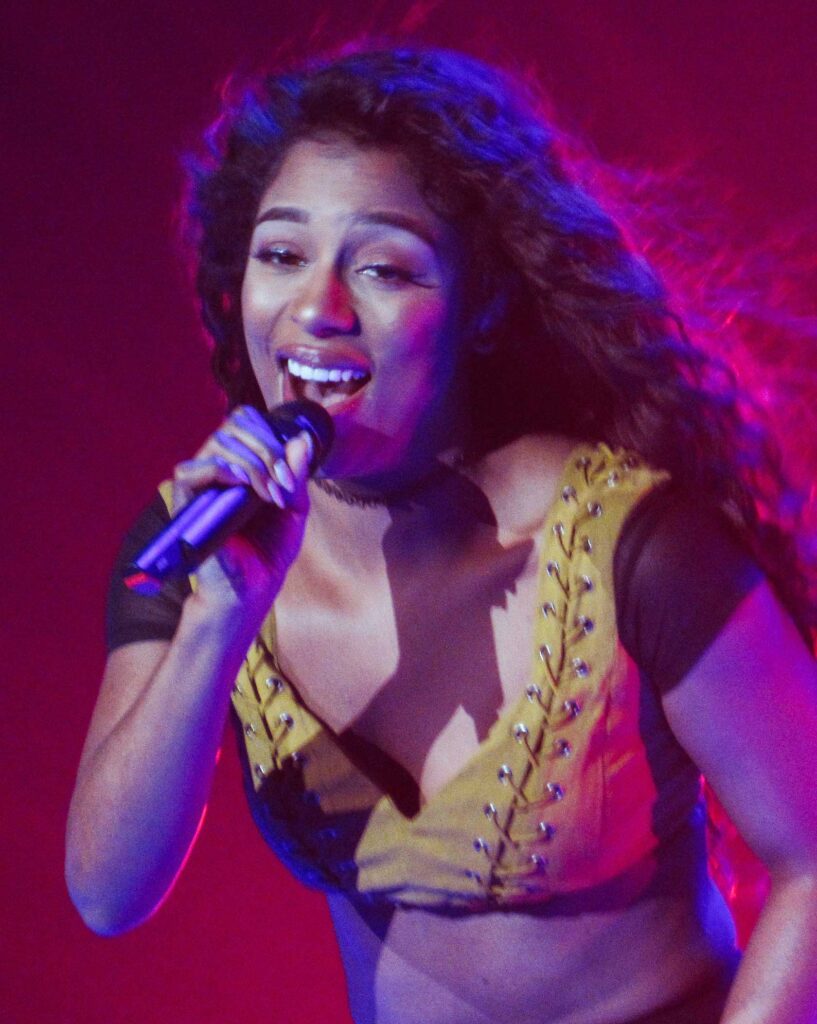
The 66th Grammys will go down as ladies’ night with women winning all the most important awards, including song of the year and album of the year.
The program, produced by Jesse Collins Entertainment, who has elevated televised award shows to new heights, was truly a night of stellar multi-generational performances. Everyone is still asking the question: How is it that Joni Mitchell, one of America’s most important folk singers, had to wait until she was 80 years old before being invited to sing at the Grammys? She had the audience and those watching in tears with her 1966 song, “Both Sides Now.”
Then there was the sizzling performance by the night’s most nominated artists SZA!
Even Tracy Chapman and Billy Joel showed up and showed out after being gone from the business for decades. Chapman’s “Fast Car” is once again zooming up the charts. The 1988 hit is currently No. 1 on the iTunes list of top songs after her duet with Grammy nominee, Luke Combs.
African music has been added as a new category to the recording academy and Nigeria’s Burna Boy oozed charisma as he ran through an infectious medley with rapper 21 Savage and R&B chanteuse Brandy.
The in-memoriam segment, 16 minutes long, was one of the most entertaining and heartfelt parts of the show. Stevie Wonder and the late Tony Bennett kicking it off with an actual duet they had recorded some time ago. Fantasia Barrino, who auditioned for “American Idol” with Tina Turner’s “Proud Mary,” closed out the “in memoriam” segment with an electrifying spin on the song.
Jay-Z got political while accepting his Dr. Dre “Global Impact” award and called out the Recording Academy for not ever giving his wife Beyonce the most prestigious album of the year. To date, Beyoncé has won 28 Grammys and has received 79 nominations overall. She has been nominated for more Grammys than any other artist in history. But only three Black women have won the honor since the category was presented at the first Grammy Awards in 1959: Natalie Cole in 1992, Whitney Houston two years later, and Lauryn Hill in 2009.
The exclusion of Black artists winning the top prize is not new. In the 66-year history of the Grammy Awards, only 11 Black artists have won album of the year. Stevie Wonder became the first Black artist to win in 1974 for “Innervisions.” He has since won three times. Jon Batiste took home the award in 2022 for “We Are,” becoming the first Black artist to win since 2009. So, the issues raised by Jay-Z to the recording academy are very relevant.
It is important to note that history is still being made for Black folks in these venues. I had a chance to speak with first-time Grammy winner Coco Jones backstage after her win for best R&B Performance for “ICU.” I asked her what it meant to win on the night when women took most of the top awards.
“For me it’s really important. I am very transparent about my journey, the highs and the lows, and I learned myself that I have to be the inspiration for the next young Black girl,” Jones said.
“Because that’s what I was looking for when I was trying to navigate this dream and this industry. There continues to be more platforms for women like me to shine, and I will do my best to open doors for women like me. My theme is, don’t give up!”
Jones garnered five nominations across multiple platforms — something that would not have happened in years past.
One of the reason things are more inclusive at the Recording Academy is the newly minted CEO Harvey Mason Jr. who was born in Boston. As the Recording Academy’s first Black CEO, Mason has worked hard to diversify the nonprofit organization since taking the helm. Since he took over two years ago, the academy has increased its membership of people of color from 24% to 38%.
His father, Harvey Mason Sr., is a noted jazz drummer and founding member of the group Fourplay. Mason Jr., who grew up in Los Angeles where he tagged along to his father’s recording sessions with the likes of Quincy Jones, Carole King, The Brothers Johnson and Herbie Hancock, is now a formidable producer in his own right. But most importantly, he is steering the National Academy of Recording Arts and Sciences (Grammys) and the music industry in the right direction by making sure everyone has a seat at the table and gets paid for their contributions.







